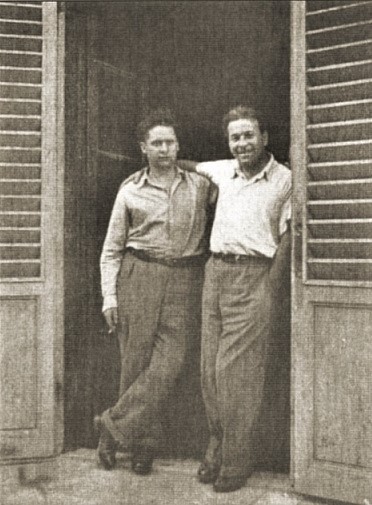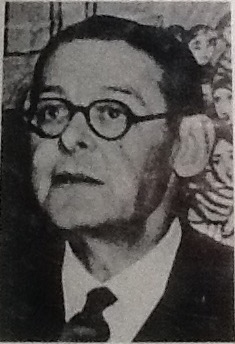Introduction to Modern Poetry

Modern poetry spans from 1900 to the end of World War I. Around 1918 some changes occurred thanks to:
- the first generation Modernists, especially Ezra Pound and TS Eliot
- the influence of War Poetry.
Ezra Pound, an American poet and critic, contributed to modernist poetry through to literary and artistic movements that were greatly influential:
- Imagism
- Vorticism

To keep it simple, we can define Imagism as an artistic movement which aimed at writing poetry in a new way by fixing clear thoughts in simple and clear images. Pound tended to replace abstractions with concrete details.
L' Art (1910)
Green arsenic smeared on an egg-white cloth,
Crushed strawberries! Come, let us feast our eyes.
published in the collection Canzoni (1911)
Ezra Pound founded Vorticism in 1914, influenced by Cubism. Poems written following this artistic trend had to avoid the use of traditional language, they had to celebrate energy, speed and dynamism. According to Pound poetry should show the movement and the stillness inside the image.
The vortex is the point of maximum energy. It represents, in mechanics, the greatest efficiency. We use the words 'greatest efficiency' in the precise sense-as they would be used in a text book of MECHANICS.
(from "Vortex", an essay by Pound which appeared in BLAST, published by Lewis, in 1914.)
Beside Pound, TS Eliot has an essential role in developing Modern poetry. His poem The Waste Land is considered the central Modernist poem.

In The Waste Land Eliot introduces the use of myth and anthropology in poetry. Moreover his poem is built around the idea of the failure of the Western civilization, being imbued as it is by images of sterility and chaos.
What are the roots that clutch, what branches grow
Out of this stony rubbish? Son of man,
You cannot say, or guess, for you know only
A heap of broken images, where the sun beats,
And the dead tree gives no shelter, the cricket no relief,
And the dry stone no sound of water.
Furthermore the poem corresponds to the characteristics of Modernism. For example Eliot uses time shifts to reveal the use of the stream of consciousness technique. The extensive use of time shits together with the use of the stream of consciousness technique generate a complete absence of narrative order. Many quotations from various authors are also inserted inside the text, in many different languages. Eliot hints at different philosophies and episodes from diverse religious traditions as well.

The second generation Modernist poets is mainly represented by the Oxford Poets, so-called because they all were students from Oxford. They appeared around the 1930s. Unlike the first generation modernist poets, the Oxford poets did not have a nihilistic vision and they did not use experimental techniques. They preferred writing in traditional forms and a less obscure language instead. Their poems were mainly concerned with social problems both in the UK and abroad. Their leader was Wystan Hugh Auden. His social and political commitment is expressed in the poem Refugee Blues. In Le Musée des Beaux Arts he deals with the men's solitude in an indifferent world.
Refugee Blues (1939)
Say this city has ten million souls,
Some are living in mansions, some are living in holes:
Yet there's no place for us, my dear, yet there's no place for us.
Once we had a country and we thought it fair,
Look in the atlas and you'll find it there:
We cannot go there now, my dear, we cannot go there now.
In the village churchyard there grows an old yew,
Every spring it blossoms anew:
Old passports can't do that, my dear, old passports can't do that.
The consul banged the table and said,
"If you've got no passport you're officially dead":
But we are still alive, my dear, but we are still alive.
Went to a committee; they offered me a chair;
Asked me politely to return next year:
But where shall we go to-day, my dear, but where shall we go to-day?
Came to a public meeting; the speaker got up and said;
"If we let them in, they will steal our daily bread":
He was talking of you and me, my dear, he was talking of you and me.
Thought I heard the thunder rumbling in the sky;
It was Hitler over Europe, saying, "They must die":
O we were in his mind, my dear, O we were in his mind.
Saw a poodle in a jacket fastened with a pin,
Saw a door opened and a cat let in:
But they weren't German Jews, my dear, but they weren't German Jews.
Went down the harbour and stood upon the quay,
Saw the fish swimming as if they were free:
Only ten feet away, my dear, only ten feet away.
Walked through a wood, saw the birds in the trees;
They had no politicians and sang at their ease:
They weren't the human race, my dear, they weren't the human race.
Dreamed I saw a building with a thousand floors,
A thousand windows and a thousand doors:
Not one of them was ours, my dear, not one of them was ours.
Stood on a great plain in the falling snow;
Ten thousand soldiers marched to and fro:
Looking for you and me, my dear, looking for you and me.
From Ten Songs

The New Romanticism started thanks to the New Apocalypse Poets. They were a group of British poets, mostly born after the World War, who eventually elected DH Lawrence as their poetic forefather. They considered him the singer of the great elemental forces of nature as opposed to mechanical things. For them Lawrence was also the writer who chose to regard emotion as superior to rationality.
Dylan Thomas, a Welsh poet, followed this literary trend. He is best known for his sensual love for words and his fascination with nature and the world of childhood, like the Metaphysical poets and the Romantics.

LnT suggests
LnT visiting the pages dedicated to TS Eliot and The Waste Land

